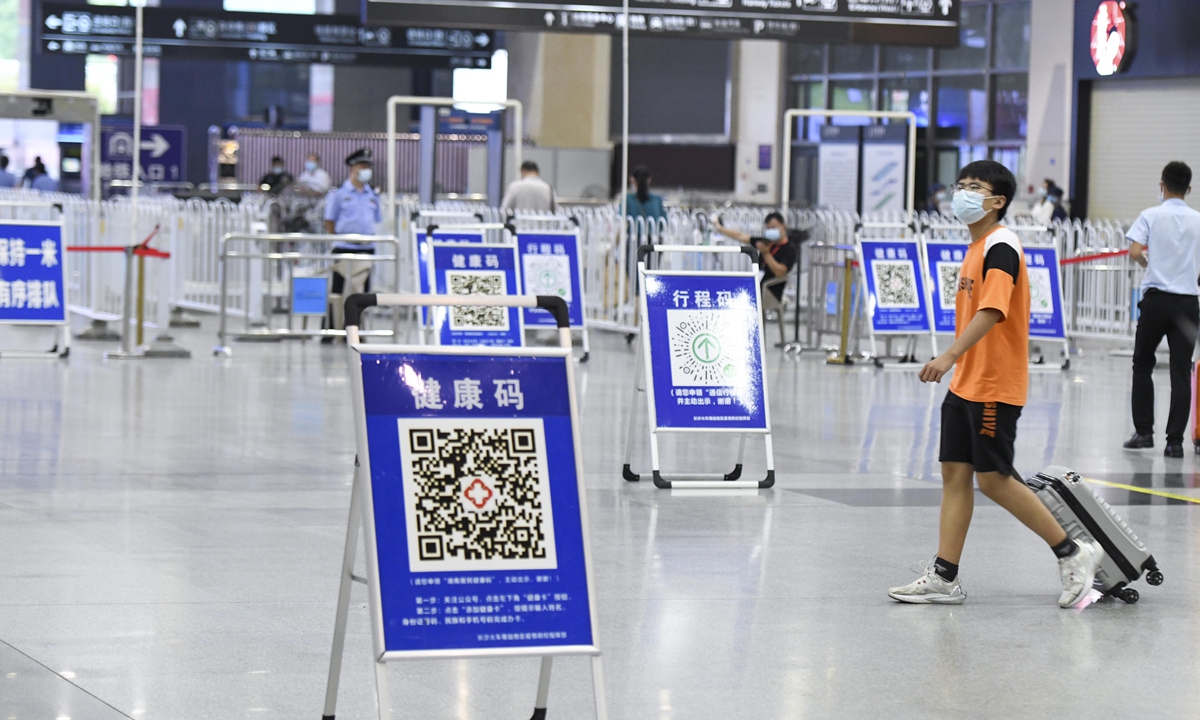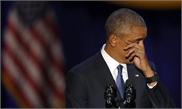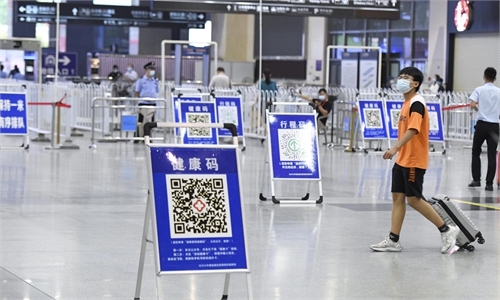China’s accountability system centers on people while US officials boast anti-virus achievements

The Changsha railway station in Central China's Hunan Province set up signs for passengers to scan their QR health codes on Friday, as Hunan clamped down after the Nanjing airport outbreak spread to at least 13 cities. Photo: cnsphoto
Eighteen officials and public post holders of Central China's Zhangjiajie, a world-renowned tourist destination in Hunan Province, were held accountable for their lax response in dealing with the COVID-19 epidemic flare-up, according to the official WeChat public account of the Zhangjiajie Municipal Commission for Discipline Inspection of Hunan on Wednesday. Among them was the head of the district public health department, Xu Xionghui, who has been removed from his post.Zhangjiajie is not the only city to punish government officials in the latest round of COVID-19 outbreaks. The director of the health commission of Zhengzhou, Henan Province, and party secretary of the Sixth People's Hospital of Zhengzhou were dismissed on Saturday after the city reported one positive asymptomatic coronavirus case and more suspected infectious cases on Friday.
Since the COVID-19 outbreak, many Chinese officials have been punished and held account for their ineffective performance. This shows how China values people's lives. China's effective accountability system is people-oriented and it is all Chinese government officials' mission to put people at the center.
"After the latest round of epidemic flare-up, Zhangjiajie's overall prevention and control measures were relatively positive. Nonetheless, 18 officials have been punished. The epidemic is a test of governance capabilities, and the accountability system is a test of whether a government really aims at serving the people," Zhi Zhenfeng, a legal expert at the Chinese Academy of Social Sciences in Beijing, told the Global Times on Wednesday.
China is the country that has the toughest measures to hold officials accountable if they have poor handling of COVID-19 prevention and control. The US, as the most powerful country, is the worst-hit country by the epidemic. However, not a single US official has been held accountable.
"China's effective accountability system shows the superiority of the Chinese system and it withstands the test of practice. Bloomberg even placed the US at the top of its COVID-19 resilience ranking, but the true situation is obvious. It is also obvious which country really values people's lives and fundamental interests," Zhi said.
Instead of punishing government officials for their malfeasance, the US has even tried to pass the buck to China. Senator Lindsey Graham announced on Monday that he has tested positive for the coronavirus. Graham has claimed several times that China should be held accountable for the COVID-19 outbreak and American people should have the right to sue individually. Such an irresponsible attitude of many US officials shows that they have never really taken ordinary people's lives into consideration.
In the US and some other Western countries, the accountability system is based on specific rules and regulations. As long as they complete their duties according to the rules, they may be exempted from allegations of negligence.
This explains why so many US officials are still in their positions despite the raging epidemic in the country, and why no official in Texas was responsible for the deaths during the severe snowstorm and power outage in February - Senator Tex Cruz even flew to Mexico for a trip during the major crisis. Despite people's anger, it is difficult to impact these officials' political career.
In China, the accountability system is a protection of people's interests. But in the West, the so-called humanitarianism seems to have become an empty talk.


